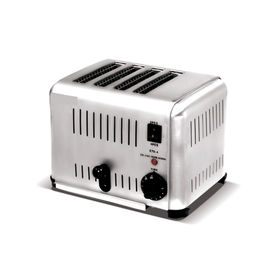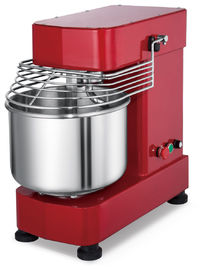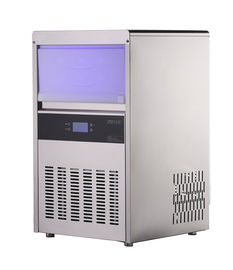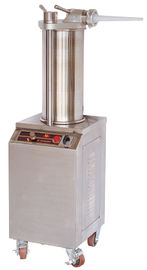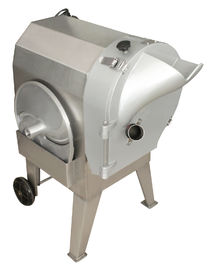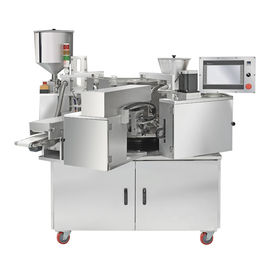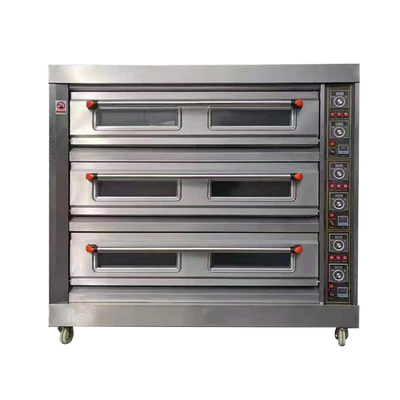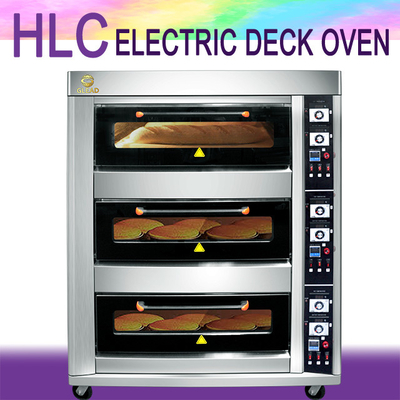Sublimation Machine 6 Trays Small Gas Stove With Electric Square Carbon Steel Baking Pan Tandoor Oven
| Model |
Name |
Voltage |
| Glead |
Deck Oven |
Electric/Gas
|
A deck oven is a type of commercial oven that is commonly used in bakeries, pizzerias, and other foodservice operations to bake a variety of goods, including bread, pastry, and pizza. It gets its name from the fact that it has multiple "decks" or levels of baking surfaces, usually made of stone or ceramic, where the food is placed to cook.
Here are some additional details about deck ovens:
Heating source: Deck ovens can be powered by various heating sources, including gas, electric, and wood. The heating source is typically located below each deck to generate heat and create a consistent baking environment. The temperature of each deck can typically be controlled independently, which allows for greater precision in baking different types of goods.
Baking surfaces: The decks of a deck oven are usually made of stone or ceramic, which helps to distribute heat evenly and absorb moisture from the dough. This can result in a crispy crust and a tender crumb.
Size and capacity: Deck ovens come in a range of sizes, from small countertop models to large floor-standing units. The number of decks can also vary, with some ovens having as few as two decks and others having six or more. The size and number of decks you choose will depend on the volume of baked goods you need to produce and the space available in your kitchen.
Energy efficiency: The energy efficiency of a deck oven can vary depending on the type of heating source it uses. Electric deck ovens are generally more energy-efficient than gas-fired ovens, as they don't require as much fuel to operate.
Price: The cost of a deck oven can vary widely depending on the size, number of decks, and features of the oven. Generally, you can expect to pay anywhere from a few thousand to tens of thousands of dollars for a high-quality oven.
Overall, a deck oven can be a great investment for any business that needs to produce a high volume of baked goods quickly and consistently. When choosing an oven, it's important to consider factors such as size, capacity, heating source, energy efficiency, and price, as well as the quality and durability of the oven.
Sure, here are some additional details about deck ovens:
Ventilation: Deck ovens generate a lot of heat, which can cause your kitchen to become uncomfortably hot and humid. Proper ventilation is essential to remove excess heat and moisture and maintain a comfortable working environment.
Controls: Most deck ovens come equipped with digital controls that allow you to set the temperature and baking time for each deck. Some models also feature programmable controls that allow you to store customized baking settings for different types of goods.
Cleaning: The baking surfaces of a deck oven need to be cleaned regularly to prevent the buildup of food residue and debris. Some models feature removable decks that can be easily cleaned in a sink or dishwasher.
Maintenance: Like any piece of commercial kitchen equipment, deck ovens require regular maintenance to ensure optimal performance and longevity. This may include tasks such as replacing heating elements, cleaning the oven interior, and checking the oven's calibration.
Accessories: Depending on the model, a deck oven may come with a range of accessories, such as baking stones, pizza peels, and deck brushes, that are designed to help you get the most out of your oven.
Versatility: Deck ovens can be used to bake a wide variety of goods, including bread, pastry, and pizza. The multiple decks allow you to bake different types of goods at the same time, which can be a real time-saver in a busy kitchen.
Overall, a deck oven can be a valuable addition to any commercial kitchen that needs to produce a high volume of baked goods. These ovens provide a consistent and even heat source that is essential for producing high-quality baked goods, and their multiple decks allow you to bake a variety of items at once. When choosing an oven, it's important to consider factors such as size, capacity, heating source, energy efficiency, ventilation, cleaning, maintenance, accessories, and versatility, as well as the quality and durability of the oven.
Sure, here are some additional details about deck ovens:
Ventilation: Deck ovens generate a lot of heat, which can cause your kitchen to become uncomfortably hot and humid. Proper ventilation is essential to remove excess heat and moisture and maintain a comfortable working environment.
Controls: Most deck ovens come equipped with digital controls that allow you to set the temperature and baking time for each deck. Some models also feature programmable controls that allow you to store customized baking settings for different types of goods.
Cleaning: The baking surfaces of a deck oven need to be cleaned regularly to prevent the buildup of food residue and debris. Some models feature removable decks that can be easily cleaned in a sink or dishwasher.
Maintenance: Like any piece of commercial kitchen equipment, deck ovens require regular maintenance to ensure optimal performance and longevity. This may include tasks such as replacing heating elements, cleaning the oven interior, and checking the oven's calibration.
Accessories: Depending on the model, a deck oven may come with a range of accessories, such as baking stones, pizza peels, and deck brushes, that are designed to help you get the most out of your oven.
Versatility: Deck ovens can be used to bake a wide variety of goods, including bread, pastry, and pizza. The multiple decks allow you to bake different types of goods at the same time, which can be a real time-saver in a busy kitchen.
Overall, a deck oven can be a valuable addition to any commercial kitchen that needs to produce a high volume of baked goods. These ovens provide a consistent and even heat source that is essential for producing high-quality baked goods, and their multiple decks allow you to bake a variety of items at once. When choosing an oven, it's important to consider factors such as size, capacity, heating source, energy efficiency, ventilation, cleaning, maintenance, accessories, and versatility, as well as the quality and durability of the oven.


 Your message must be between 20-3,000 characters!
Your message must be between 20-3,000 characters! Please check your E-mail!
Please check your E-mail!  Your message must be between 20-3,000 characters!
Your message must be between 20-3,000 characters! Please check your E-mail!
Please check your E-mail! 
